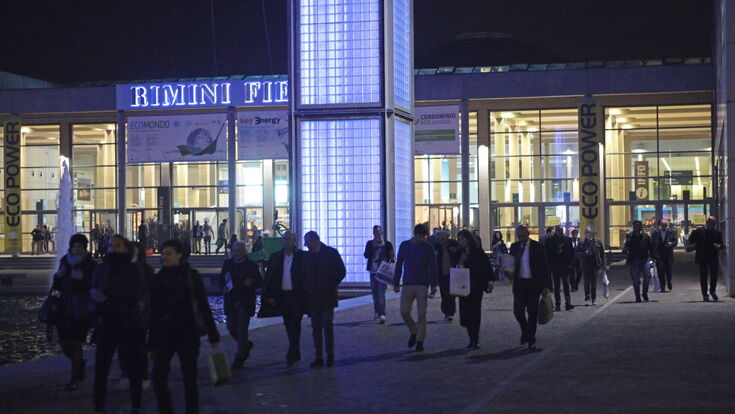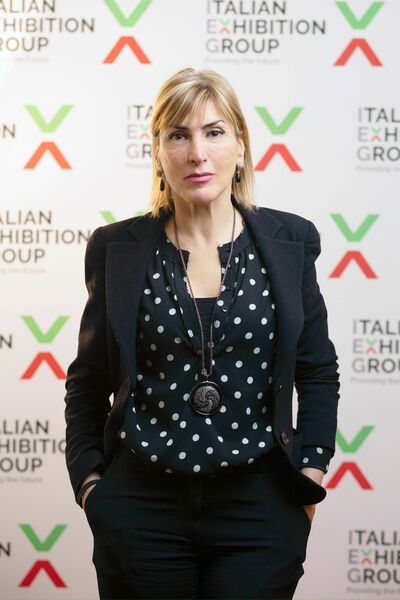Ecomondo 2022 Interview : Alessandra Astolfi: "Ecomondo represents an exceptional networking opportunity"

This is the second Ecomondo during the Covid pandemic. What will it be like this year?
Ecomondo is confirming its role as one of the most innovative and authoritative expo and market events in Europe and in the Mediterranean basin for issues connected with ecological transition and sustainable development, whereas Key Energy, held simultaneously, is the reference point for favouring and accelerating energy transition and the process of spreading renewable energies. The new edition will involve international trade and industry members from over 60 countries, thanks to the collaboration with MAECI and the ITA-Italian Trade Agency.
Over the years, Ecomondo has established a strong position in Southern Europe, the Mediterranean and Sub-Saharan Africa. The challenges of green transition are shared by all countries and these issues are also of fundamental importance for the African continent; we strongly believe in the opportunities of exchange between Africa, Italy and Europe and have thus decided to set up a real networking platform extended to include the countries of the Mediterranean basin with the Africa Green Growth Forum event.
Showcases of technology, solutions and service as well as a hub for networking, new opportunities, discussion and updating, the two expos fit perfectly into the European Green Deal and NextGenerationEU context.
Will the event’s sessions also be available online or on demand later?
Divided into conferences on the NRRP (Italy’s National Recovery and Resilience Plan), production chain and “beacon” conferences, once again this year a calendar of conferences and seminars is being prepared with experts, researchers, companies, and national and international institutions, with even greater participation of the European Commission: stakeholders that make the two expos top-grade European events on the ecological transition front, thanks also to the work of the two Technical Scientific Committees: Ecomondo’s, headed by Professor Fabio Fava of Bologna University, and Key Energy’s, headed by Gianni Silvestrini, the scientific director of the Kyoto Club. The expos’ traditional face-to-face format is further enriched by the innovative tool of the digital platform, and the majority of the events will be accessible via live streaming and on demand: how they can be followed can be seen by visiting www.ecomondo.it.
How has Ecomondo evolved over the years?
The Italian Exhibition Group expo was the first to concentrate on the creation and valorisation of the concept of waste as a resource, with the “Ricicla” brand, which then evolved into “Ecomondo”. In 1997 it brought together the numerous industrial chains and the sectors that form the green economy, to arrive at a circular economy as the new paradigm. Over the years, the commitment has grown a lot, but the roots remain the same: intercepting European trends from the point of view of policies and emerging technologies, to face the major issues connected with social and economic sustainability. Ecomondo is once more asserting its key role in the Mediterranean basin for the institutional, association and business worlds and for research and innovation in the circular bioeconomy field. Along with its partners, IEG will continue to give concrete responses to industry’s new necessities, increasingly aiming at an economic system with sustainability as its main focus.

What are Ecomondo’s main objectives?
Occupying the over 100,000 square metres of the entire Rimini expo centre, it provides authoritative business and research platforms that promote networking between public and private enterprises, local administrations and the scientific world. While Key Energy will bring the best “green" technological solutions for renewable energies, storage systems, energy efficiency, urban upgrading, sustainable mobility, illumination and smart grids to the expo, Ecomondo will be organised around four large macro-issues: the management and valorisation of waste and its transformation into a secondary raw material; circular bioeconomy and bioenergies; the treatment and management of water resources; and the remediation and upgrading of contaminated and abandoned industrial sites and hydrogeological risks.
Can you tell us something about the Start-up & Scale-up Innovation initiative?
Among this year’s new features, e.g. food waste, the textile hub and environmental protection, there is the Start Up & Scale Up Innovation initiative, promoted in collaboration with the ITA agency, whose main partner is ART-E (Attractiveness Research Territory), Emilia-Romagna Joint Stock Consortium.
The expo area will be both physical and virtual, entirely reserved for innovative start-ups and young Italian and international enterprises able to offer services and/or products ascribable to the green tech and environmental sustainability world in an energy context and to the sustainable mobility world.
Why should readers join Ecomondo in November and what opportunities can you contribute to creating?
I believe that the issues covered at the expo will be the most topical: it is sufficient to consider how much sustainability and energy are talked about today. Ecomondo represents an exceptional networking opportunity from every point of view. We can no longer continue to extract prime resources from the planet. The model of linear economy based on the concept of extraction, production-consumption and production of disposable goods can no longer work on a planet that now has a population of over seven billion. Food is no longer sufficient, there is a lack of water, and climate change has eroded pieces of fertile land, making them unusable. In Europe we have refined our ability to produce technology that is able to transform waste into a resource and new raw material; we are very advanced in the prevention of waste and the reuse of production scrap in the manufacturing cycle. A new circular economy is regenerative and possible.
Seminars and conferences with a high scientific content for the sector’s players will shed light on best practices already in use, where models of circular economy are tangible and also replicable in other contexts.


